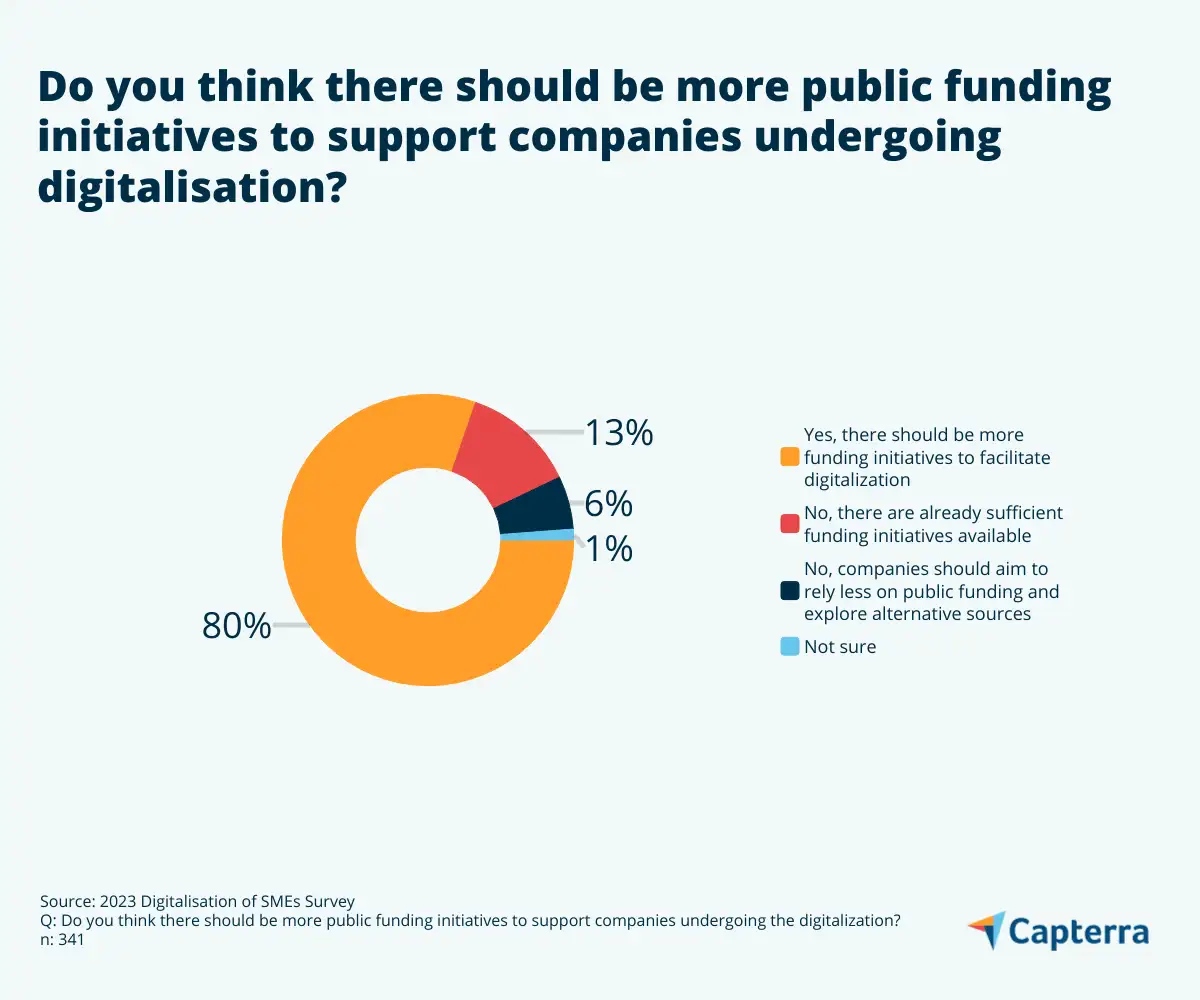The findings reveal key insights around the state of digitalisation in India with respect to government funding and initiatives along with major barriers and challenges faced by SMEs.
Capterra India conducted the study with a total of 435 respondents (including a group of managers, senior managers, or CEOs/founders) out of which 341 work for SMEs, and 94 work for enterprises —companies having more than 250 employees. These respondents, hereon known as decision makers, belong to companies that have a digitalisation strategy in place or have implemented one in the past, thus providing a relevant, comprehensive, and wide-ranging insight into the concept of digitalisation for small and medium businesses.
Sukanya Awasthi, Content Analyst for Capterra India and Digitalisation of Indian SMEs survey, said, in a statement, “In recent years, there has been an increased focus by the Indian government to supercharge the country’s economy through digitalisation. The flagship programme, “Digital India” is one example of this, which has served as a guiding framework for digital transformation in critical industries. Moreover, India’s ambitious target of becoming a $5-trillion economy with a 30% contribution from the MSME sector to GDP requires the sector to play a pivotal role in the country’s growth story, which is why the government may be looking to provide various incentives, funding and budgetary allowances for SMEs in India.”

Some key highlights from the survey:
⦁ Cybersecurity issues are one of the top barriers to digitalisation, with 36% of the respondents stating that digitalisation should not come at the cost of cybersecurity issues such as data breaches, data loss, and data theft.
⦁ 65% of companies have received government funding for digitisation at least once, which indicates that programmes run by the government like the Digital India Program and Startup India Initiative have been successful in their goals to assist existing and budding entrepreneurs and startups.
⦁ 8 in 10 think there should be more funding initiatives to facilitate digitalisation, with 52% saying that digitalisation would be challenging or even impossible without government funding.










